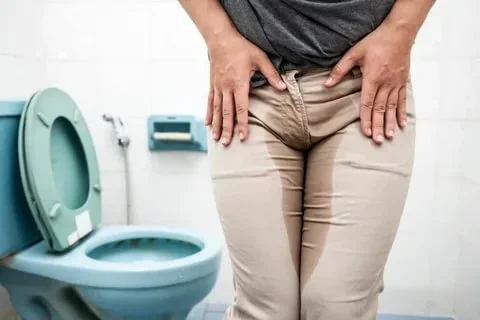Urinary Incontinence
The loss of bladder control is a common and often embarrassing problem. The severity ranges from occasionally leaking urine when you cough or sneeze to having a sudden and strong urge to urinate. It occurs more often as people get older.
Causes
Urinary incontinence can be caused by everyday habits, underlying medical conditions, or physical problems. Certain drinks, foods, and medications may act as diuretics, stimulating your bladder and increasing your volume of urine.
They include:
- Alcohol
- Caffeine
- Carbonated drinks
- Foods that are high in spice, sugar.
- Heart and blood pressure medications, sedatives, and muscle relaxants.
- Urinary tract infection.
- Constipation – compacted stools in your rectum cause the nerve to be overactive and increase urinary frequency.
- Pregnancy
- Menopause
- Enlarged prostate
- Prostate cancer
- Neurological disorder
Symptoms
Many people experience minor leaks of urine. Types include:
- Stress Incontinence: Urine leaks when you exert pressure on your bladder by coughing, sneezing, laughing, exercising, or lifting something heavy.
- Urge Incontinence: Sudden intense urge to urinate followed by an involuntary loss of urine. Can be caused by diabetes or neurological disorder.
- Overflow Incontinence: Frequent or constant dribbling of urine due to a bladder that doesn’t empty completely.
- Functional Incontinence: Physical or mental impairment keeps you from making it to the toilet in time.
- Mixed Incontinence: You experience more than one type of urinary incontinence, which refers to a combination of stress incontinence and urge incontinence.
Homoeopathic Invention
As per the latest research in homeopathy, urinary incontinence may be caused by a Territory Conflict—that is, an intrusion into one’s place (home, property), including the extended territory (neighbourhood, village, city, country). Work-related marking conflicts are provoked, for example, through fights over a position or when a competitor moves into the professional terrain.
Homeopathic Approach
Homeopathic medicines help in treating urine incontinence. They strengthen the detrusor muscles of the urinary bladder. Homeopathy not only treats the external symptoms of incontinence but also helps resolve the underlying problems, thus providing a permanent solution to this disorder. Homeopathic remedies can thus offer a natural and safe option for treating urinary incontinence, and can save people from a potentially embarrassing situation without any side effects.


Medicines
Homeopathic Medicines
Causticum :
Paralysis of bladder affecting the muscles of expulsion resulting in the retention of the urine and of the sphincter vesical which causes involuntary urination not even feeling that the stream of urine is passing.
Alumina :
Urine dribbles out involuntarily due to paralysis of the bladder. It is retained and dribbled out.
Equisetum :
Remedy for enuresis and dysuria. When wetting the bed is without any tangible cause except habit.
Bryonia :
Dribbling of urine when moving. It flows on walking and is relieved only by keeping quiet.
Benzoic Acid :
Urination involuntary in sleep, the bed that has been wetted several times becomes uncleanable. Its smells like intensified urine.



